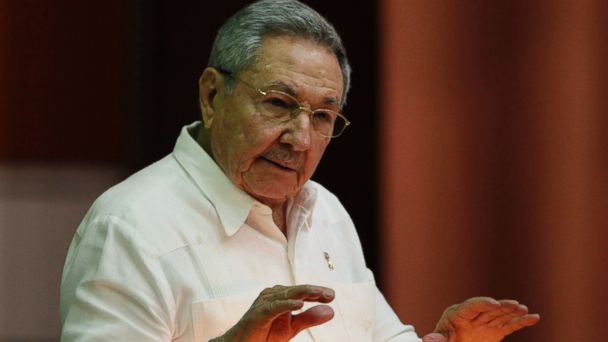'Cuban TV Airplane' Report Reveals $36M US Boondoggle

Cuba's President Raul Castro delivers his speech during closing of the third regular session of the eighth legislature, at the National Assembly in Havana, Cuba, July 5, 2014. Credit: Ismael Francisco/Cubadebate/AP Photo
Remember " Cuban Twitter," the ill-fated US test program that would have tried to get Cubans to text each other with subversive anti-government messages?
Well, then this is "Cuban Television Airplane" - except it was an actual US-funded project, and existed for almost a decade, to the tune of tens of millions of dollars, before it was quietly canned in April 2014, a State Department Office of Inspector General report revealed today.
Called Aero Martí and purchased in 2006, the program included a single 1960s turboprop plane that tried to transmit US government broadcast signals to Cuba - except for the fact that the Cuban government easily jammed its signal every day so it never really worked.
For several years, the Broadcasting Board of Governors, which oversees all US government media abroad (VOA, Radio Free Europe), called for Congress to end the program but vocal anti-Cuba members of Congress refused to cut funding.
Then the plane became the victim of budget sequestration, so it was grounded in 2013 but its storage and maintenance was still paid for, to the tune of $79,524 per year - "just enough money to do nothing," the Washington Post wrote last year.
The doomed program was finally cancelled for good in April 2014, today's OIG report said.
The plane, whose programming was nicknamed by Cubans as la TV que non se ve , ("the TV that can't be seen,") cost taxpayers a total of almost $36 million in the nine years it was funded.